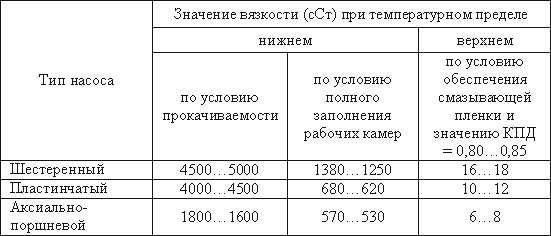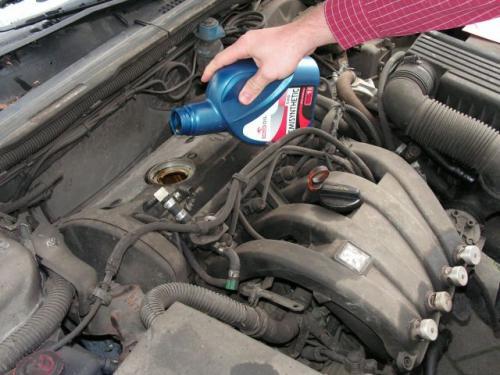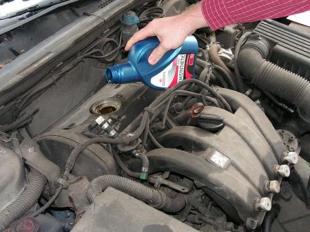
Working fluids
 Car users sometimes feel that the only fluid that needs to be topped up is fuel. Nothing like this.
Car users sometimes feel that the only fluid that needs to be topped up is fuel. Nothing like this.
Car users sometimes feel that the only fluid that needs to be topped up is fuel. Nothing like this.
It can be said that an empty tank is not as dangerous as the absence of other liquids hidden in the work shade in our car.
ENGINE
Engine oil is responsible for reducing friction in the engine, especially in highly stressed components such as pistons and cylinders. These are places that are especially exposed to high temperatures! During the operation of the unit, the oil takes away part of the heat, preventing it from overheating. Its absence or significant loss can cause serious problems.  consequences, including immobilization of the vehicle and engine damage! The vehicle manufacturer makes recommendations regarding the frequency of oil changes. Usually this is a period of annual operation, or mileage, from 30 to 50 thousand kilometers. The course also depends; even the age of the car. Older designs use more oil and replacement can be determined by driving around 15 kilometers. The new engines, thanks to a better fit, greater design accuracy and compactness, are characterized by lower oil consumption. A separate issue is the filling of cavities during the year. Oil burns normally, as does fuel. Not only that - modern engines equipped with a turbocharger (both gasoline and diesel) can burn up to a liter of oil per 1000 km when driving hard! And it meets the manufacturer's standards. Therefore, we will pay attention to its level and make up for its shortcomings.
consequences, including immobilization of the vehicle and engine damage! The vehicle manufacturer makes recommendations regarding the frequency of oil changes. Usually this is a period of annual operation, or mileage, from 30 to 50 thousand kilometers. The course also depends; even the age of the car. Older designs use more oil and replacement can be determined by driving around 15 kilometers. The new engines, thanks to a better fit, greater design accuracy and compactness, are characterized by lower oil consumption. A separate issue is the filling of cavities during the year. Oil burns normally, as does fuel. Not only that - modern engines equipped with a turbocharger (both gasoline and diesel) can burn up to a liter of oil per 1000 km when driving hard! And it meets the manufacturer's standards. Therefore, we will pay attention to its level and make up for its shortcomings.
Transmission
The question of transmission oil (both automatic and manual transmissions) and rear axle oil (rear-wheel drive vehicles) is quite simple. Well, in modern cars there is no need to periodically replace it. This need arises only in emergency cases.
охлаждение
The next very important "drink" of our car is the coolant. Also, during its operation - in case of violations - mechanical damage may occur. For example, the water hose or water pump may be damaged. The coolant must provide sufficient protection against freezing and boiling in the radiator. The fluids used in our latitudes have a resistance, more or less, at minus 38 degrees C. It is recommended to change the fluid every 2-4 years, or every 60 kilometers. Standards are also set by the vehicle manufacturer. Lack of fluid can lead to engine overheating - due to a stop of the car (for example, due to a frozen hose).
Efficient brakes
The brake fluid in your car should be changed every 2 years. Its ability to absorb moisture (especially dangerous for acute and frequent use, for example, in the mountains), can cause it to boil! The normal limit for brake fluid is from 240 to 260 degrees Celsius, after 2-3 years the fluid begins to boil at 120-160 degrees C! The consequences of boiling brake fluid are not pink - then steam bubbles form and the brake system almost completely fails!
Don't forget the washer fluid. It is underestimated, and it is worth noting that without the right fluid, our visibility can be significantly reduced. It is better to replace the liquid with one with a freezing temperature of at least -20 degrees C before the arrival of this winter.
Turn without resistance
The last thing worth mentioning is the fluid in cars equipped with power steering. Irregularities can lead to a lot of resistance. Then we will be forced to work with the steering wheel much harder than, for example, in a car without power steering. Fortunately, oil problems in this system are not common faults, so periodic oil changes are not required.
Some fluids we can make ourselves (for example, coolant, washer fluid). More complex, it is better to order specialized services that will select suitable products for us.
